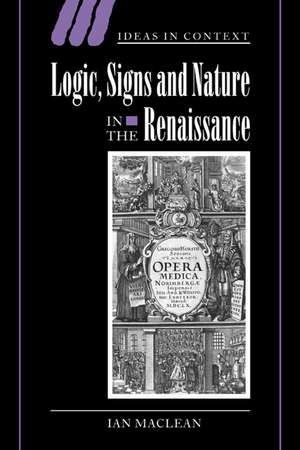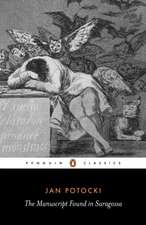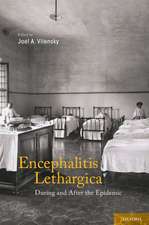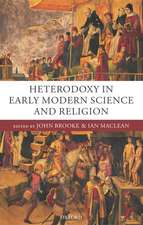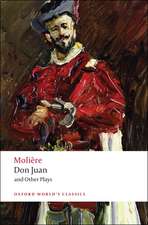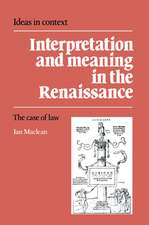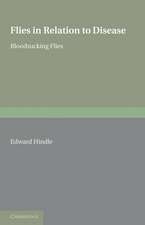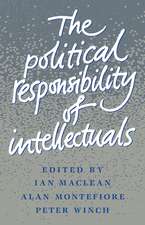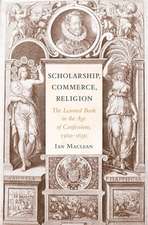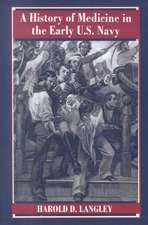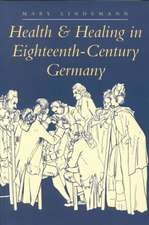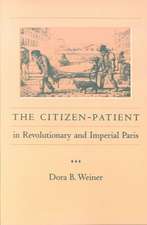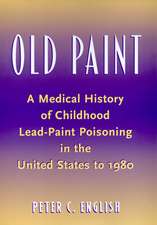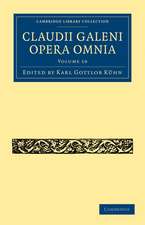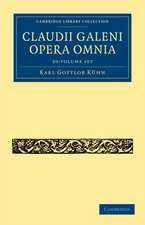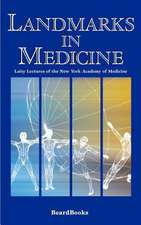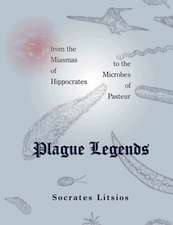Logic, Signs and Nature in the Renaissance: The Case of Learned Medicine: Ideas in Context, cartea 62
Autor Ian MacLeanen Limba Engleză Paperback – 22 apr 2007
| Toate formatele și edițiile | Preț | Express |
|---|---|---|
| Paperback (1) | 381.86 lei 6-8 săpt. | |
| Cambridge University Press – 22 apr 2007 | 381.86 lei 6-8 săpt. | |
| Hardback (1) | 573.70 lei 6-8 săpt. | |
| Cambridge University Press – 7 noi 2001 | 573.70 lei 6-8 săpt. |
Din seria Ideas in Context
- 9%
 Preț: 592.57 lei
Preț: 592.57 lei -
 Preț: 200.63 lei
Preț: 200.63 lei -
 Preț: 200.27 lei
Preț: 200.27 lei -
 Preț: 178.15 lei
Preț: 178.15 lei -
 Preț: 200.37 lei
Preț: 200.37 lei -
 Preț: 200.41 lei
Preț: 200.41 lei -
 Preț: 230.08 lei
Preț: 230.08 lei -
 Preț: 240.27 lei
Preț: 240.27 lei - 9%
 Preț: 627.25 lei
Preț: 627.25 lei -
 Preț: 224.34 lei
Preț: 224.34 lei - 11%
 Preț: 695.06 lei
Preț: 695.06 lei - 11%
 Preț: 693.36 lei
Preț: 693.36 lei - 9%
 Preț: 626.77 lei
Preț: 626.77 lei - 9%
 Preț: 626.34 lei
Preț: 626.34 lei - 11%
 Preț: 626.38 lei
Preț: 626.38 lei -
 Preț: 246.32 lei
Preț: 246.32 lei - 8%
 Preț: 530.32 lei
Preț: 530.32 lei - 9%
 Preț: 592.79 lei
Preț: 592.79 lei - 27%
 Preț: 648.34 lei
Preț: 648.34 lei - 9%
 Preț: 592.05 lei
Preț: 592.05 lei -
 Preț: 187.82 lei
Preț: 187.82 lei -
 Preț: 188.70 lei
Preț: 188.70 lei -
 Preț: 192.99 lei
Preț: 192.99 lei -
 Preț: 160.82 lei
Preț: 160.82 lei - 11%
 Preț: 583.02 lei
Preț: 583.02 lei -
 Preț: 178.45 lei
Preț: 178.45 lei - 11%
 Preț: 601.91 lei
Preț: 601.91 lei - 11%
 Preț: 585.25 lei
Preț: 585.25 lei -
 Preț: 185.17 lei
Preț: 185.17 lei -
 Preț: 276.77 lei
Preț: 276.77 lei - 11%
 Preț: 583.56 lei
Preț: 583.56 lei -
 Preț: 179.68 lei
Preț: 179.68 lei - 11%
 Preț: 584.90 lei
Preț: 584.90 lei -
 Preț: 375.56 lei
Preț: 375.56 lei -
 Preț: 284.17 lei
Preț: 284.17 lei -
 Preț: 285.54 lei
Preț: 285.54 lei -
 Preț: 298.92 lei
Preț: 298.92 lei -
 Preț: 282.87 lei
Preț: 282.87 lei -
 Preț: 288.04 lei
Preț: 288.04 lei -
 Preț: 284.56 lei
Preț: 284.56 lei -
 Preț: 273.35 lei
Preț: 273.35 lei
Preț: 381.86 lei
Preț vechi: 401.96 lei
-5% Nou
Puncte Express: 573
Preț estimativ în valută:
73.07€ • 76.45$ • 60.70£
73.07€ • 76.45$ • 60.70£
Carte tipărită la comandă
Livrare economică 02-16 aprilie
Preluare comenzi: 021 569.72.76
Specificații
ISBN-13: 9780521036276
ISBN-10: 0521036275
Pagini: 432
Ilustrații: 12 b/w illus.
Dimensiuni: 150 x 228 x 20 mm
Greutate: 0.63 kg
Ediția:1
Editura: Cambridge University Press
Colecția Cambridge University Press
Seria Ideas in Context
Locul publicării:Cambridge, United Kingdom
ISBN-10: 0521036275
Pagini: 432
Ilustrații: 12 b/w illus.
Dimensiuni: 150 x 228 x 20 mm
Greutate: 0.63 kg
Ediția:1
Editura: Cambridge University Press
Colecția Cambridge University Press
Seria Ideas in Context
Locul publicării:Cambridge, United Kingdom
Cuprins
List of illustrations; Acknowledgements; Notes on the text and its modes of reference; Introduction; 1. Learned medicine 1500–1630; 2. The transmission of medical knowledge; 3. The discipline of medicine; 4. The arts course: grammar, logic and dialectics; 5. The arts course: signs, induction, mathematics, experientia; 6. Interpreting medical texts; 7. The content of medical thought; 8. The doctrine of signs; Postscript; Bibliography; Index of names and terms.
Recenzii
'… a sine qua non for all historians of medicine …' History
'… to fail to read this book would be to ignore one of the most original contributions to the intellectual history of medieval and Renaissance medicine in recent years.' Isis
'In this important book Ian Maclean has opened up what for many medical historians is one of the most abstruse and difficult areas of Renaissance medicine.' Renaissance Studies
'Maclean's book contributes to our appreciation of the vitality of the late Renaissance intellectual world.' The American Historical Review
'This is a dense, rewarding and remorselessly intelligent study of a neglected aspect of European learned culture written by one of the most original early-modern intellectual historians currently working.' History of Universities
'… provides Renaissance historians and historians of science and medicine with a valuable addition to our picture of early modern intellectual life.' Journal of the History of Medicine
'… to fail to read this book would be to ignore one of the most original contributions to the intellectual history of medieval and Renaissance medicine in recent years.' Isis
'In this important book Ian Maclean has opened up what for many medical historians is one of the most abstruse and difficult areas of Renaissance medicine.' Renaissance Studies
'Maclean's book contributes to our appreciation of the vitality of the late Renaissance intellectual world.' The American Historical Review
'This is a dense, rewarding and remorselessly intelligent study of a neglected aspect of European learned culture written by one of the most original early-modern intellectual historians currently working.' History of Universities
'… provides Renaissance historians and historians of science and medicine with a valuable addition to our picture of early modern intellectual life.' Journal of the History of Medicine
Descriere
The second in a sequence exploring the foundations of learning in the Renaissance, here focusing on medicine.
